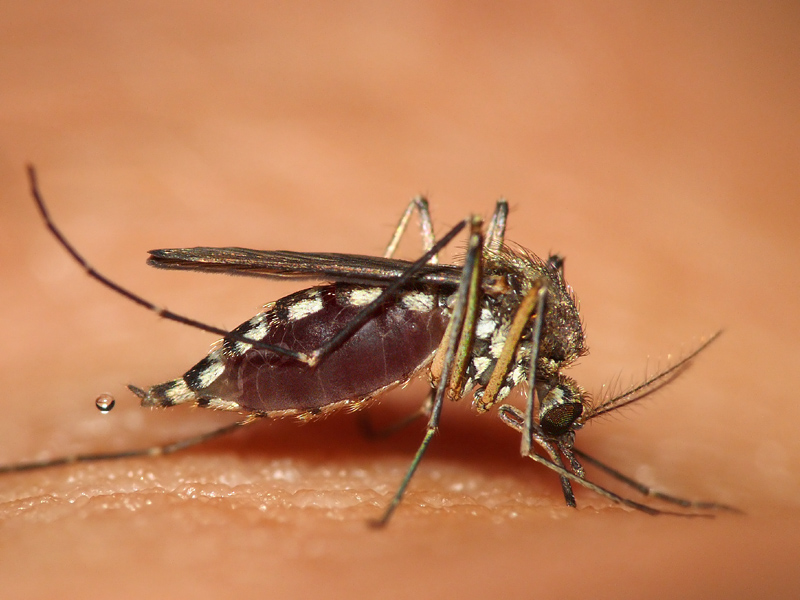Scientists have announced the creation of a genetically-modified malaria-proof mosquito and, simultaneously, another group have discovered a simple way to trigger malarial immunity with a dose of antibiotics.
The anti-malarial mosquito, published this week in the journal PLoS Pathogens, is the brain-child of University of Arizona scientist Mike Riehle. He and his colleagues have inserted into the animal a genetic sequence to boost the activity of a gene called Akt, which is involved in larval development, immunity and lifespan.
 Mosquitoes carrying this construction have a more powerful immune response to malaria, the team found, but also live less long. This makes them apparently impossible to infect, because the enhanced immune response stops the parasite gaining a toe-hold inside them in the first place, and the truncated lifespan knocks out the mosquito before it has had a chance to transmit the disease yet still leaves enough time for it to breed.
Mosquitoes carrying this construction have a more powerful immune response to malaria, the team found, but also live less long. This makes them apparently impossible to infect, because the enhanced immune response stops the parasite gaining a toe-hold inside them in the first place, and the truncated lifespan knocks out the mosquito before it has had a chance to transmit the disease yet still leaves enough time for it to breed.
At the same time, Heidelberg University scientist Johannes Friesen and his colleagues, writing in Science Translational Medicine, have shown that although the quest for an anti-malarial vaccine has so-far been unsuccessful, there could be another way to protect vulnerable people from the disease.
Antibiotic treatment during the transmission period, they found, suppresses acute symptoms and blocks the ability of the parasite to mature but nonetheless permits the development of a powerful immune response, allowing the development of natural, protective immunity.
The results, demonstrated in mice, suggest that "periodic prophylaxis with safe and affordable antibiotics could offer an effective shortcut toward a needle-free surrogate malaria immunisation strategy."
The benefits of both these studies could be huge, given that the global disease burden secondary to malaria is about 300 million cases and over a million deaths annually, with most of the fatalities in children.










Comments
Add a comment